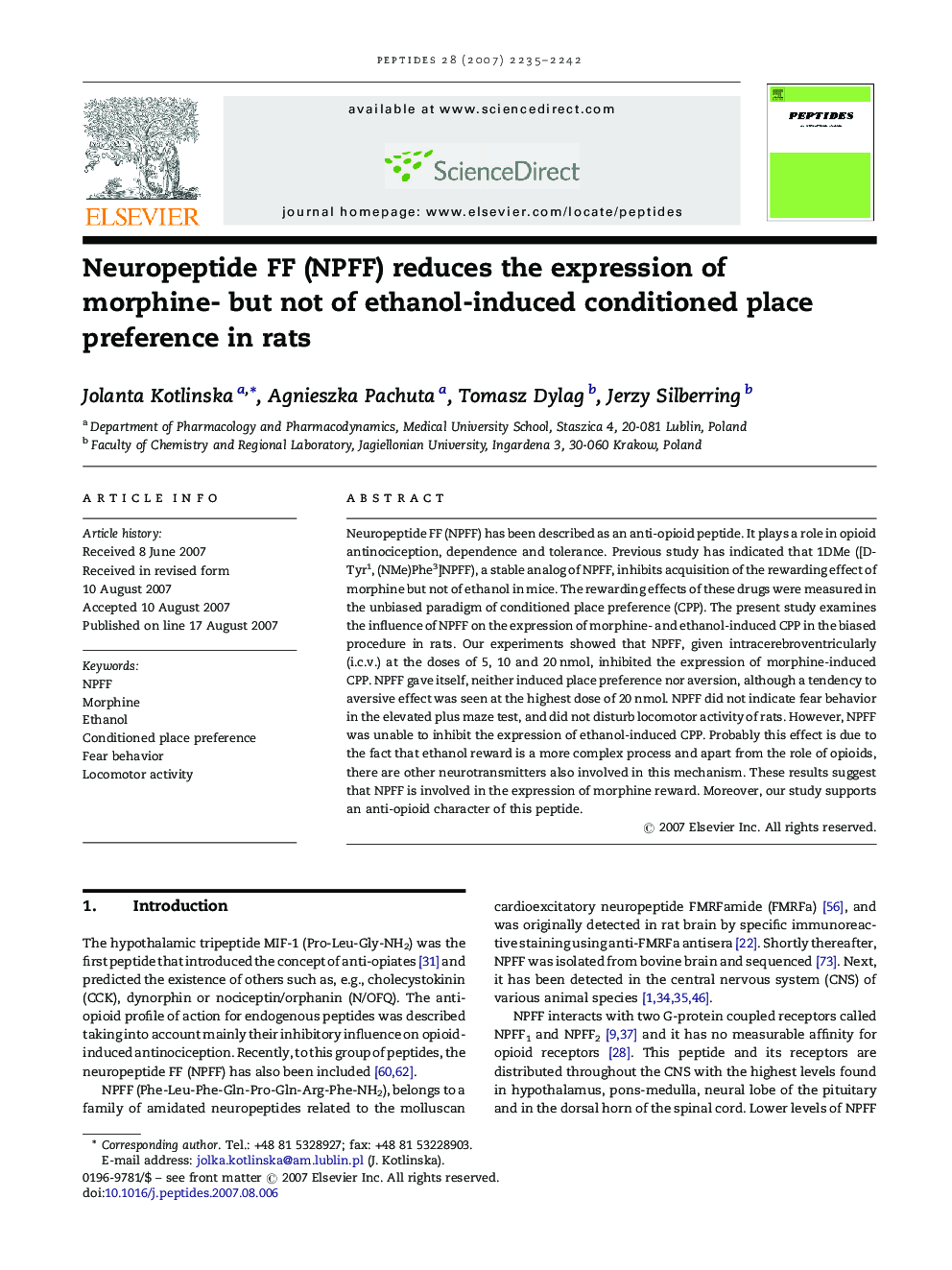| Article ID | Journal | Published Year | Pages | File Type |
|---|---|---|---|---|
| 2007555 | Peptides | 2007 | 8 Pages |
Neuropeptide FF (NPFF) has been described as an anti-opioid peptide. It plays a role in opioid antinociception, dependence and tolerance. Previous study has indicated that 1DMe ([D-Tyr1, (NMe)Phe3]NPFF), a stable analog of NPFF, inhibits acquisition of the rewarding effect of morphine but not of ethanol in mice. The rewarding effects of these drugs were measured in the unbiased paradigm of conditioned place preference (CPP). The present study examines the influence of NPFF on the expression of morphine- and ethanol-induced CPP in the biased procedure in rats. Our experiments showed that NPFF, given intracerebroventricularly (i.c.v.) at the doses of 5, 10 and 20 nmol, inhibited the expression of morphine-induced CPP. NPFF gave itself, neither induced place preference nor aversion, although a tendency to aversive effect was seen at the highest dose of 20 nmol. NPFF did not indicate fear behavior in the elevated plus maze test, and did not disturb locomotor activity of rats. However, NPFF was unable to inhibit the expression of ethanol-induced CPP. Probably this effect is due to the fact that ethanol reward is a more complex process and apart from the role of opioids, there are other neurotransmitters also involved in this mechanism. These results suggest that NPFF is involved in the expression of morphine reward. Moreover, our study supports an anti-opioid character of this peptide.
